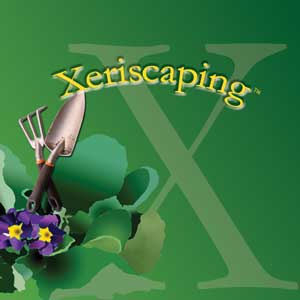Xeriscaping DVD May Help Homeowners Save Water and Money

by David Lichtenstein, Castle Pines North Metro District
In less than half an hour any resident can learn how to transform a yard into a beautiful landscape that works with our Colorado environment. A free DVD, funded by a grant from the Colorado Water Conservation Board (CWCB), makes this possible.
The DVD, planned for distribution around the beginning of April, will reach 100,000 homes in the South Metro area. Supporting this effort is the Douglas County government, the Douglas County Water Resource Authority (DCWRA), South Metro Water Supply Authority, and the Centennial Water & Sanitation District. A new website, www.dcwater.org, is being built to support the DVD and provide relevant information.
“Did you know that approximately three quarters of the water used in Douglas County during the summer months goes toward watering non-native bluegrass?” asked Mark Shively, president of the DCWRA and Castle Pines North Metro District Board President, in a public service announcement designed to promote the distribution of the DVD.
The goal of the DVD is to teach citizens how to Xeriscape, a term originally coined by Denver Water. Xeriscaping conserves water by focusing landscape design on plants and grasses that thrive in low water conditions.
“Our single greatest objective in the DVD distribution is to help our citizens understand how to reduce the amount of water used for outside landscaping, yet still have a beautiful lawn and garden,” said Shively. “This DVD provides practical, do-it-yourself information, ideas and visual examples of what works for our community and our future to save water and still have a beautiful yard.”
To determine the effectiveness of this DVD and the $58,000 CWCB matching grant used to fund it, Don Glaser, executive director of the CFWE has been charged with coordinating feedback received from residents. Feedback will be gathered in three ways including hits to the CWCB website (cwcb.state.co.us), feedback documented by water providers and customers, and the use of a formal survey.
“We need a critical mass of people to actually change their landscaping,” said Glaser. “This will help get others involved.”
Ultimately, the water providers involved in this DVD distribution hope that it leads to a reduction in water consumption. This could have a significant impact on the conservation of Denver Basin groundwater.
“Adopting water wise behavior will be helpful to all concerned, even if you just do a little something,” said Shively. Conserving water will also reduce the amount of renewable water the Castle Pines North Metro District will need to purchase.
If Xeriscaping is properly implemented, it could also have a significant impact on the consumer’s pocketbook. In Castle Pines North, for example, the cost of water increases proportionally to the amount used. Each home is issued a “water budget,” or monthly allotment of water based on lot size. If a resident exceeds the water budget, a tiered increase in the cost of water per thousand gallons is put into place. Xeriscaping can significantly help water users stay within the first tier and lower overall consumption as well.
Before making any changes to landscaping, it is important for residents to check with the architectural control committee of their neighborhood homeowners’ association. Check www.cpnhoa.org to find the appropriate person to talk to about landscaping changes.
More Xeriscape information can be found at the CPN Metro District, 7404 Yorkshire Drive or at www.cpnmd.org.
Editor’s Note:
The word “Xeriscape” is a registered trademark of the Denver Water Department, and was developed in 1981 to help promote water conserving landscape methods.